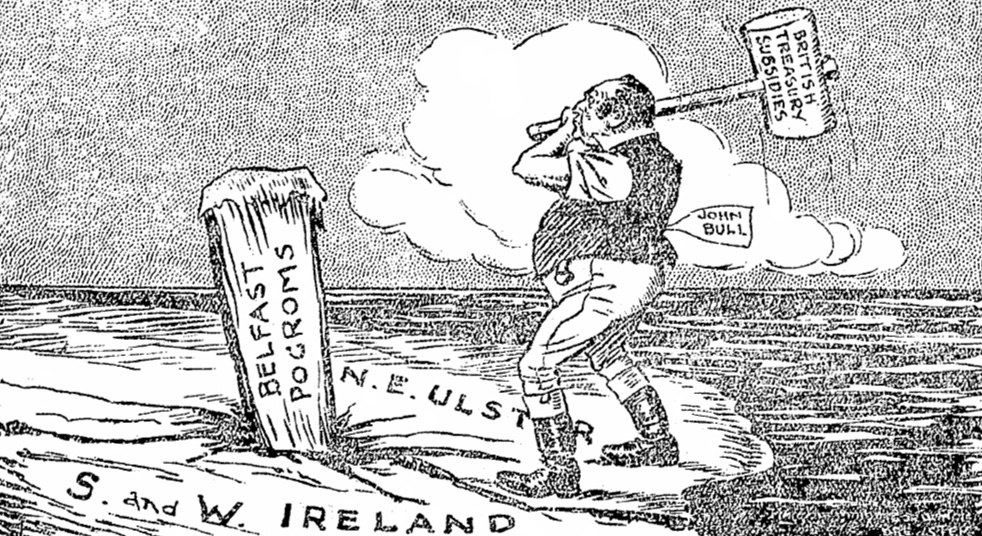Catholic refugees flee south as Belfast attacks continue
Dublin, 10 June 1922 – Catholic refugees are arriving in Dublin in significant numbers as they escape ongoing sectarian violence in Belfast.
The refugees are currently being housed in Marlborough Hall, where, following the arrival of 78 people on 7 June, the number seeking refuge in Dublin now totals 500.
The transfer of the refugees from Amiens Street station, where they arrived from Belfast, to Marlborough Hall was overseen by Commandant Leo Henderson. Henderson is associated with the anti-treaty IRA currently stationed in the Four Courts and was acting on behalf of the North-East Ulster Boycott Committee. Last week, Comdt Henderson said that reports that the provisional government had accepted responsibility for the refugees were untrue. Rather Dáil Éireann, through the Local Government Department, was responsible.
A reporter from the Irish Times who has visited Marlborough Hall says that while the refugees take responsibility for cleaning their rooms, the cooking is done by cooks from the republican army. A doctor and nurse are present to attend to their medical needs.
The able-bodied men leave every morning to look for work in the city, but as yet, none has been successful owing to the prevailing economic conditions. Many of the families that have fled to Dublin have lost everything.
The worsening situation in Belfast has been documented by the Dáil Éireann Publicity Department, which claims that there are now more than 2,000 Catholic homeless in Belfast. In a summary of events for the month of May, it is claimed that there were over 90 sniping attacks on predominantly Catholic areas with 29 houses either burned out or fired at. The summary also pointed to more than 100 attempted murders, with 130 houses raided by military, RIC and ‘B’ Specials.
Prof. Paul Bew, in conversation with RTÉ's Bryan Dobson, examines the significance of violence in Northern Ireland in the 1920s
The bitter lived experience of those impacted by these attacks was recounted to a Belfast priest in a letter subsequently forwarded to the Belfast Catholic Protections Association. The letter, written by Jack McCusker, an former sergeant in the British army, tells of his own family’s desperate plight.
McCusker recounted the details of an attack on his family home by drunken Specials on the night of 25 May as he, his wife and five children were in bed. Onlooking soldiers, he said, laughed as his house was being ransacked, its windows smashed and his children terrorised. ‘My wife and children were told to shut their _____ mouths, and I was taken downstairs and put into the Lancia car along with another ex-soldier, John Turner, who is a disabled pensioner suffering from tuberculosis.’
McCusker, said that he expected to be taken away and murdered but was saved by his war record after he told a District Inspector that in his four years on the western front he had never seen the Germans carry on in such dirty and brutal manner. McCusker also recounted in his letter the similar experiences of others, including a 77 year old widow whose house was also raided by Specials, who broke a crucifix and tore up photographs of Joseph Devlin and the late Pope.
Allegations of the persecution of Catholics have been challenged in the unionist Belfast Newsletter, which has rejected claims that there is an ‘Orange pogrom’ in the north and states that the Orange Order had no ‘connection whatsoever with the reprisals that have been provoked by the Sinn Féin gunmen’s diabolical campaign in Belfast’.
[Editor's note: This is an article from Century Ireland, a fortnightly online newspaper, written from the perspective of a journalist 100 years ago, based on news reports of the time.]





















